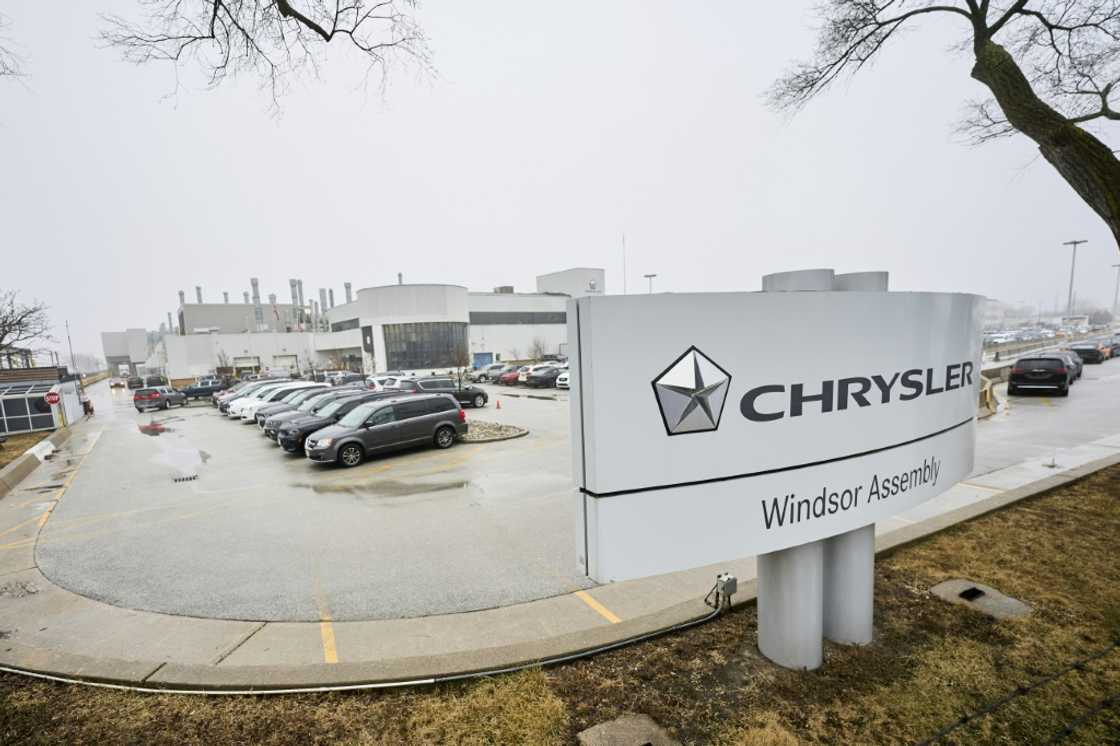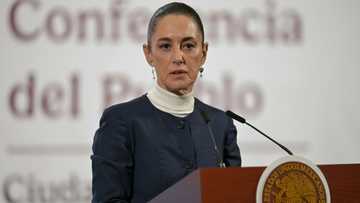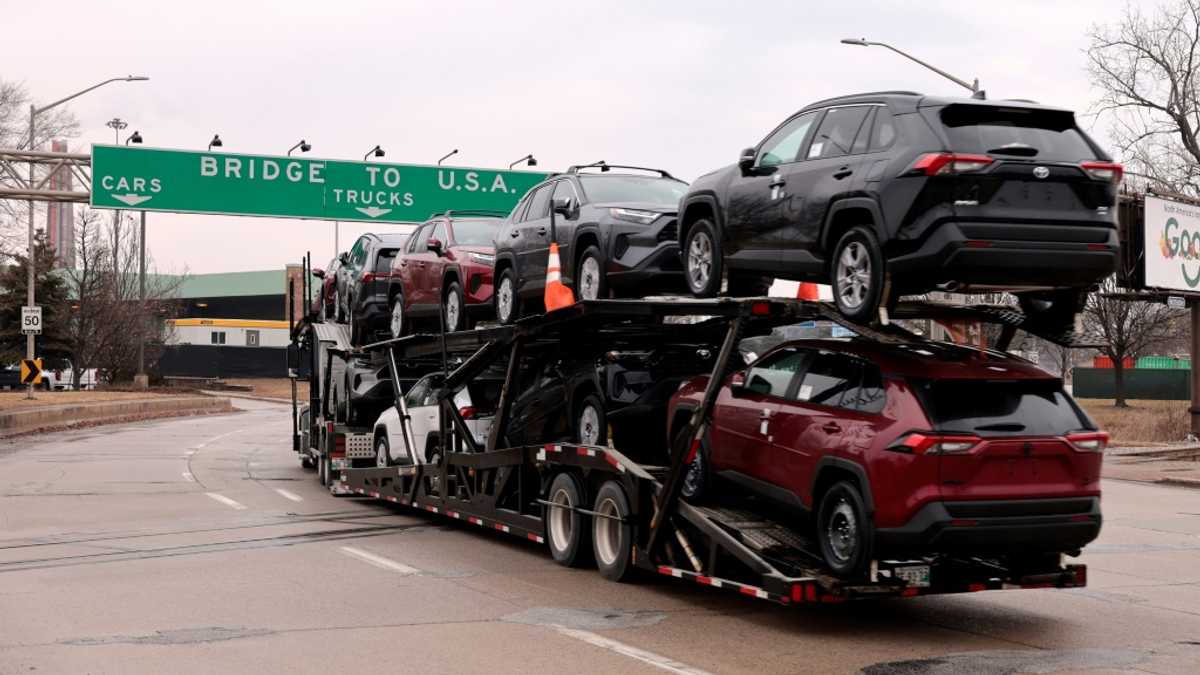A car hauler carries Toyota RAV4 vehicles as it enters to cross the Ambassador Bridge in Windsor, Ontario to go to Detroit, Michigan on February 3, 2025.
Photo: JEFF KOWALSKY / AFP
Source: AFP
The trade war may be on hold, but in a Canadian border city where the unhindered flow of auto parts across the bridge to Detroit supports thousands of jobs, the future remains uncertain.
When Prime Minister Justin Trudeau announced Monday that punishing US import tariffs threatened by President Donald Trump had been delayed a month, the line of cars waiting to enter Windsor, Ontario was stacked dozens deep.
The build up was heavy for a Monday but not extraordinary, underscoring how lives and the economies in Windsor and Detroit have grown intertwined.
Among those who had just driven across the suspension bridge connecting the cities was Ryan Martin, a 33-year-old automotive engineer, who lives in Canada but crosses daily to work in Michigan.
“I’m relieved for now,” he told AFP through the rolled down window of his black pick-up truck, as he waited to clear Canadian customs.

Read also
Ordinary Chinese stoic in the face of escalating US trade war
But, he added, “I think the damage is already done.”
The relationship between the United States and Canada — a close alliance for well over a century that currently involves billions of dollars in daily cross border trade — “is not in a good spot,” said Martin.
“Not as good as it should be.”
‘Freaking out’
 The Chrysler Windsor Assembly Plant sign sits at the edge of the Stellantis facility in Windsor, Ontario, Canada, on January 31, 2025.
The Chrysler Windsor Assembly Plant sign sits at the edge of the Stellantis facility in Windsor, Ontario, Canada, on January 31, 2025.
Photo: Geoff Robins / AFP
Source: AFP
Trump’s pledge to impose a blanket 25 percent tariff on all Canadian imports, which may resurface in a month, pushed national anxiety in Canada to rare heights.
Canada announced retaliatory measures and economists warned the US levees could trigger a recession by mid-year.
Trump has said tariffs were aimed at forcing Canada to counter the cross-border flow of migrants and the powerful and dangerous drug fentanyl.
That argument provoked bewilderment among some Canadians, as Ottawa maintained that less than one percent of fentanyl and undocumented migrants in the United States cross through the northern border.

Read also
Stocks and peso boosted by Trump’s Mexico, Canada tariff delay
In Windsor, Trump’s motivation for tariffs likely matters less than their potentially existential impact on the auto industry, which drives the local economy.
“It’s massive,” said John D’Agnolo, who heads a local union representing Ford plant workers.
Ford has been employing people in Windsor for more than 100 years and without auto jobs the city would be plunged into a “huge recession,” he said.
When Trump signed the order on Saturday signalling tariffs would go into force, people believed “cross border trade, especially for the automotive sector, was heading to a dark place,” D’Agnolo said.
Members of his union “were, quite frankly, freaking out.”
D’Agnolo estimated that there are 30,000 individual parts in an average vehicle, some of which cross the US-Canada border multiple times through a manufacturing process that has developed over years to maximize efficiency.
Workers at his plant, for example, make engines for Ford trucks assembled in the United States.

Read also
In fire-ravaged Los Angeles, a long road of rebuilding
A 25 percent tariff each time Canadian cargo headed into Michigan would cause car companies “a lot of pain,” he said.
“It would be impossible.”
For D’Agnolo, the 30-day pause was obviously welcome but has hardly settled minds in Windsor.
“For now it’s relief, but it gives workers an eye opener,” he said.
His message to union members is “you’re going to have to start saving some money, because we don’t know yet.”
‘Four years of not knowing’
Krysten Lawton, a health and safety trainer at the Ford plant, is a fourth generation auto worker and her children just joined the industry.
“It’s kind of our bloodline,” the 52-year-old told AFP.
Lawton said she exhaled deeply in relief when news of the tariff pause broke Monday but she was steeling herself for uncertainty which she expects to last throughout Trump’s second term.
“I don’t think we’re going to feel safe for some time. I think it’s going to be four year of not knowing,” she said.

Read also
With boos and boycotts, Canadians voice displeasure with Trump
Earlier in her career, she dealt more closely with Ford colleagues in Detroit — relations that were always cordial — and she voiced hope that US-Canada bonds could transcend any fraying caused by the tariff standoff.
“This is just chaos…this is a drive to divide people and I hope that people are smarter than that,” she said.
“We would love for North America to flourish… as a whole.”
PAY ATTENTION: Сheck out news that is picked exactly for YOU ➡️ find the “Recommended for you” block on the home page and enjoy!
Source: AFP
